Background: Start Here!
What is GSoC?
Google Summer of Code is a remote summer coding program funded by Google. Google distributes funds to open software development organizations to recruit new developers and mentors for summer mentorships. You get paid to write software at home (or wherever you like), with guidance from expert mentors distributed around the globe.
To apply to be a GSoC contributor, you must write an application to GSoC for one or more OpenAstronomy project ideas. Each summer, several projects are offered by OpenAstronomy mentors, with well-defined scope and pre-requisite experience. If you are selected by OpenAstronomy, you will be a GSoC contributor.
What is OpenAstronomy?
OpenAstronomy is an umbrella organization which acts as an interface between the Google Summer of Code and several open source, open development projects in the astronomical community, including astropy, sunpy, and several other astronomy projects. It coordinates mentors and projects for Google Summer of Code mentorships related to astronomy.
What is the application process?
You must submit your application to the Google Summer of Code, but it’s preferable that you also share it well before the deadline with your potential project mentors or the rest of the community. Then they will be able to give you feedback before officially submitting it. Check the application template. You can also find applications from previous years in the GitHub wiki pages of some of the OpenAstronomy members.
The complete details on applying are in the GSoC Contributor Guide.
Who is eligible to apply to GSoC?
Until 2021, GSoC was a programme eligible exclusively to university students. The ultimate goal of GSoC has always been to attract and retain new open source contributors. Hence, as of its 2022 edition, the student status is no longer required, and one is eligible to take part in GSoC as long as they are an “open source beginner”.
On the OpenAstronomy side, we actively seek self-motivated applicants with some experience developing software in Python and other languages. We are especially looking for individuals who are genuinely interested in developing open source software. You don’t need to be a Python guru or an astronomical coordinate system expert to be eligible – projects are available that cover a range of previous experience in Python and astronomy. Individuals from any background from anywhere around the world are encouraged to apply.
Testimonials
In the summer after my second year of graudate school, I didn’t have funding to work on any projects in my home department. I applied and was selected for GSoC 2015, and I worked with another student and several encouraging mentors on developing a new astropy affliated package, called astroplan. The program greatly improved my coding style, taught me loads about managing large projects, version control, testing, and packaging. Do you have a summer without research funding? Apply!
Brett Morris, Astro PhD student, GSoC 2015
After spending the summer of 2015 as an intern at NIST, I got really fascinated by how much Python aided scientists get the best out their data. Then, while looking for Python projects to perform data fitting and modeling, I found AstroPy. I got really surprised by how easy and intuitive data fitting can be done with the astropy API. That motivated me to start learning git and later contributing code and documentation for the project. Then in the summer of 2016 I applied to the GSoC to work on PSF photometry for photutils and got selected! :) One of the best parts of the GSoC was the amount of learning I got by being mentored by experts in software development and astronomy! If you want to know more about my journey during the GSoC 2016 see my blog posts.
Zé Vinícius, EE undergraduate student, GSoC 2016
Apply!
Now that you know you’re a good candidate, check out the GSoC Contributor Guide to learn how to apply.
